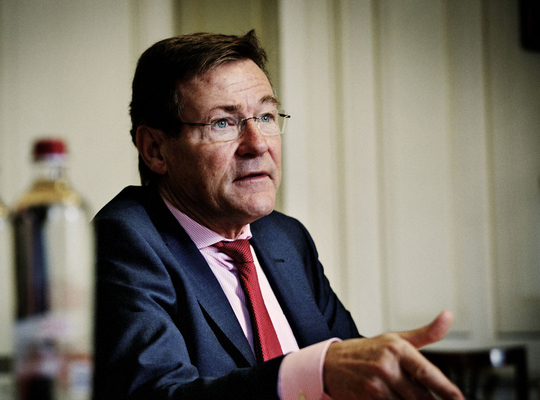You are here
Johan Van Overtveldt on inflation: “It is time for action”

On 1 January, the euro celebrated its twentieth anniversary. The introduction of the European currency in 2002 may have made life a little harder, but it did not lead to a general increase in prices. Over the past year, on the other hand, Inflation The increase in the general price level. The original meaning (literally “to blow up”) is monetary inflation, which means that the amount of money increases. Today, inflation primarily refers to price inflation. This means an implicit monetary depreciation. This causes the purchasing power to drop. inflation skyrocketed. MEP and former Minister of Finance Johan Van Overtveldt explains how that happened and what needs to be done.
“We have gone from virtually no inflation to six to seven per cent in one year. This has to do with rising energy prices, as well as with the pandemic, which meant that numerous supply chains were disrupted and parts for production often failed to arrive at their destination,” Johan Van Overtveldt says. “Moreover, price increases cause wage increases, and wage increases in turn give rise to new price increases. That is a vicious circle.”
Monetary policy
Johan Van Overtveldt says that the monetary policy has been an important catalyst. However, the N-VA has been warning for many years about the perverse effects of printing additional money.
“Ms Lagarde, the President of the European Central Bank, always avoided this criticism and kept repeating that this inflation is transitory. She thus saw no reason to intervene in monetary policy.”
Meanwhile, inflation is hitting the north of Europe much harder than the south. “Northern Europe exports much more, also to countries outside the EU. Inflation is affecting Competitiveness The extent to which companies in one country can compete with similar companies in another country. A law came into force in Belgium in 1996 to monitor competitiveness. This stipulates that Belgian salaries may not evolve faster than the average of those in the three neighbouring countries. The Central Economic Council (CEC) performs an annual measurement to see if the objectives have been obtained. competitiveness . In that sense, inflation is having more of an impact in the north than in the south. And we Flemish are savers. Due to the policy of the European Central Bank, we are receiving hardly any return on those savings. While inflation is eating away at our purchasing power.”
Time for action
“The federal government is doing nothing in the meantime. When the N-VA was in the federal government, we actually did what had to be done. We focused on reforms such as the Tax shift There is a tax shift when a new tax is implemented or an existing tax is increased in order to reduce or get rid of another tax. The N-VA is a proponent of a shift of the burden on labour to that on consumption or environmental pollution, for example, but not of a tax that increases the total burden of taxation. tax shift and corporation tax reform. But the current Vivaldi government is dominated by French-speaking parties, and the Walloon side does not seem to be very bothered. But it does have negative, crippling consequences for Flanders. When the worst part of the pandemic has subsided, it will become clear which countries were best prepared. It is time for action. We need to get back to more structural economic growth.”

